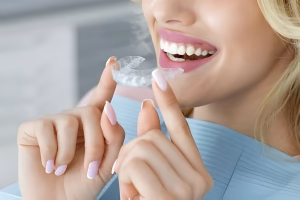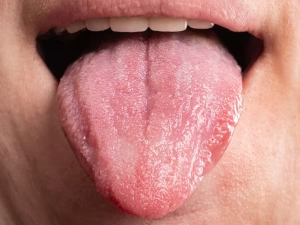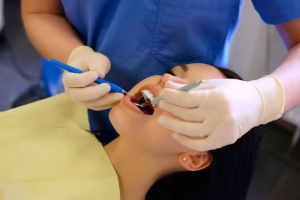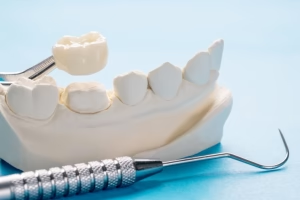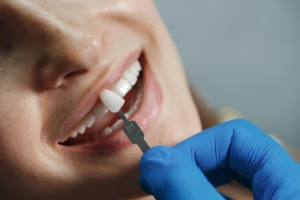Tips for the prevention of TMJ disorder
22 February 2016

If you’ve experienced a disorder in this area it is quite frankly a pain in the…well, jaw! Temporomandibular Joint, more commonly referred to as TMJ disorder, is a common injury and one which can leave patients in a considerable amount of pain. In this article, we explore the causes, symptoms and treatment for TMJ.
Your TMJ connects your jaw to your skull and put simply, TMJ disorder covers any ailment suffered in any of the muscles that help the jaw to move. Fluid jaw movement helps to take care of all of your basic human needs – eating, drinking and talking, so it’s imperative that any TMJ disorder is quickly diagnosed and treated.
The causes of TMJ disorder vary from injury to the teeth, teeth grinding, arthritis, stress and even poor posture so any one of us could fall victim to the syndrome and find ourselves at the mercy of our jaw-pain. There are a multitude of possible symptoms of TMJ disorder, some are obvious such as sore jaw muscles, difficulty chewing, jaw-clicking and lock-jaw and some not so; earache, headache, popping ears, swelling of the face, tongue pain, shoulder pain and dizziness.
Whilst suffering from a TMJ disorder can be extremely painful and uncomfortable for the patient, the good news is that the majority of cases can be managed at home with some simple remedies such as ice packs, anti-inflammatory drugs, eating soft foods and reducing stress. Once you’ve been professionally diagnosed, if your TMJ disorder doesn’t sort itself out with the above methods you’ll need another trip to your dentist to discuss further treatment, which if avoided can lead to much bigger complications down the track.
Additional treatment includes a mouth guard which keeps your teeth aligned and will stop you from grinding your teeth during your sleep when you have no control, physiotherapy and in extreme cases, surgery. If you think your TMJ Disorder is the result of stress then you can prevent a re-occurrence by introducing some long-term relaxation techniques into your life – take a holiday, cut back at work and introduce some you time into the day. Whilst this may seem impossible on the surface, it’s worth remembering that if your jaw is suffering because of stress then there could be other areas of your health also suffering and is a good indication that you need to make some changes.
For more information on digital dentistry and developments in the industry, have a chat with the friendly dental team at MGA Dental Gold Coast or Brisbane team phone Gold Coast (07) 5539 9748 or Brisbane (07) 3273 3343 or visit our website to book your appointment online www.mgadental.com.au or email [email protected].

